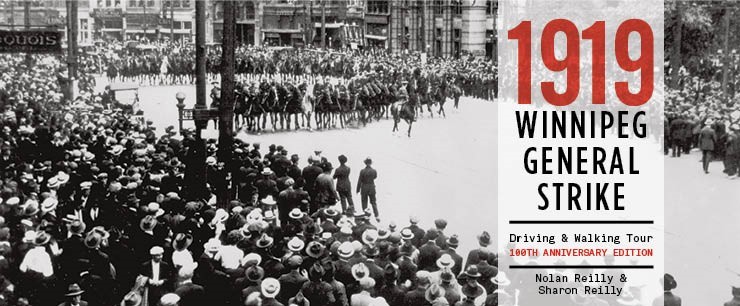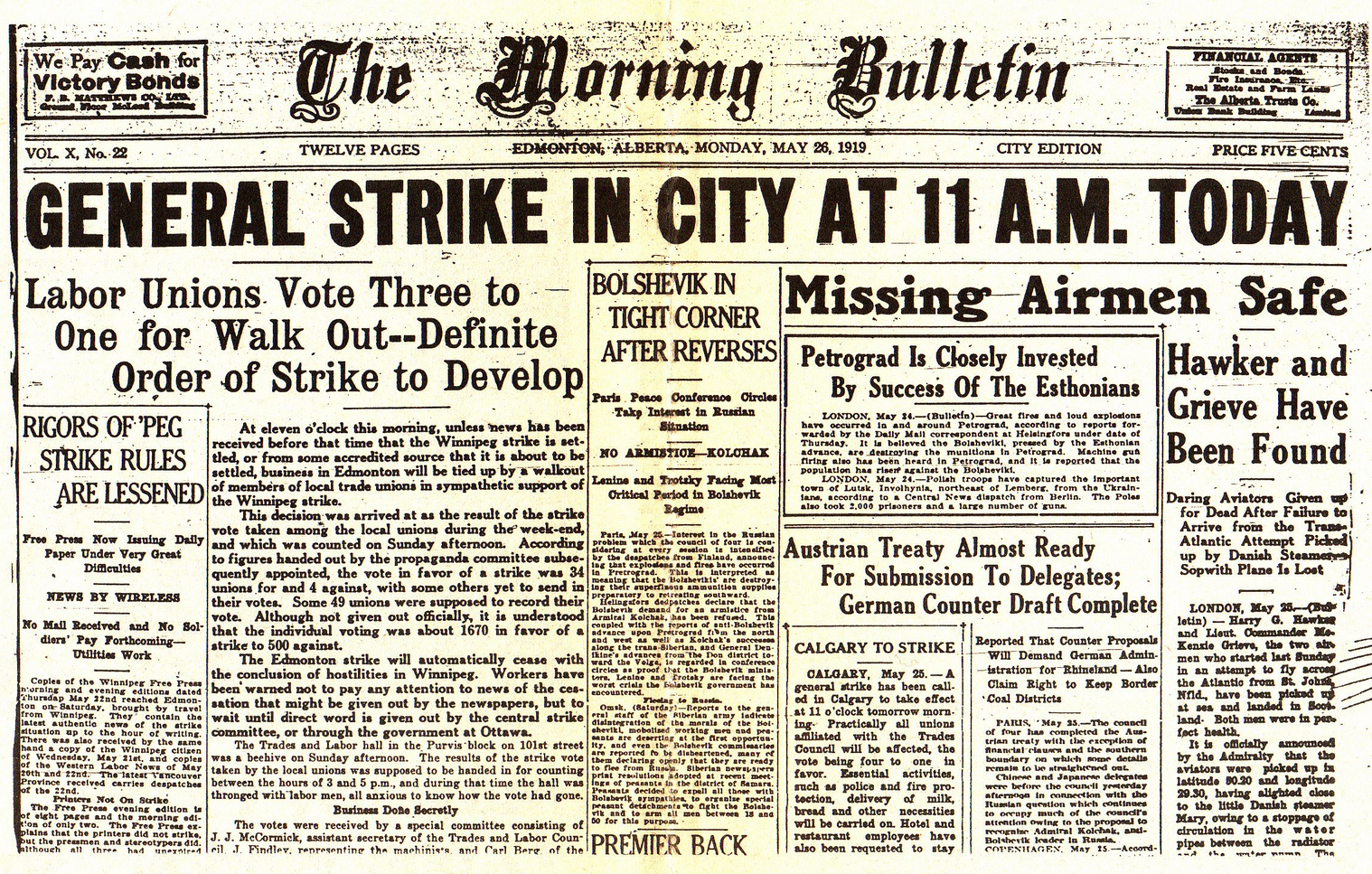
Prayers of the People:
As we remember history, O God,may we be prompted to think about today,
and hear your call to build a better tomorrow.
From the “hello girls” of the Salter Street telephone exchange,
who urged the next shift not to go to work,but to join the strike four hours early,
may we learn from these 500 women
there is no time like the present:the struggle for justice cannot wait.
From the returning World War I veterans,
who risked their lives for a better world
and came home to find their families hungry,
who marched down the streets of the profiteers,may we, too,
speak truth to power, and sing the songs of justice.
From Helen Armstrong and William Ivens and J.S. Woodsworth,
may we learn to put our beliefs into action
In a time when it was difficult not to be English,
in a time when Indigenous and Metis peoples
were shoved to the margins of history,
in a time of fear of those labelled “foreign”,
may we, like the Winnipeg strikers of 1919,
make common cause for justice,and call each other sister, brother.
In a world that would divide us,may we bear each other’s burdens and know
an injury to one injures us all.T
his we pray in the name of Jesus who turned the tables...
barb janes
You may have noticed that this week marks the 100th anniversary of the Winnipeg General Strike, a work stoppage which spread throughout the city.On May 15, 1919, women who operated telephones refused to go to work, followed by trade workers, soon followed by thousands of other unionized and non-unionized workers ranging from clerical workers and bakers, to streetcar drivers and police officers.The strike lasted six weeks, as workers fought for higher wages, better working conditions and the right to collective bargaining. This would be the largest strike in Canadian history with 30,000 workers off their jobs.
The strike quickly became an ugly confrontation with politicians and business leaders claiming that Bolshevik foreigners were behind it, a claim that was never substantiated but supported by Winnipeg newspapers. The federal government stepped in to put down the protests, arresting leaders and attacking those at rallies. The violence injured about 30 people and killed two. Known as Bloody Saturday, the day ended with federal troops occupying the city’s streets.

Photo of mounted troops galloping around a bend in the road at Main St
and Market Ave on Bloody Saturday, 21 June 1919.
I had only a vague awareness of the strike but thanks to the research of long-time friend and colleague, Robin Wardlaw I discovered that faith leaders, Christians and Jews, were involved as an expression of their Social Gospel convictions. Robin collaborated with other United Church clergy to create a package of worship materials acknowledging these important weeks in the history of the Labour Movement in Canada. www.unifaith.ca/winnipegstrike100.pdf
Why should we care now? In Ontario the current government shelved plans to move the minimum wage upward to a more livable $15. There are many thousands in this province and elsewhere who are the working poor, with pay so low they must avail themselves of food banks and meal programs.
It has become common for some to dismiss the labour movement and unions as outdated or protecting the undeserving or downright greedy. They have forgotten the sacrifices made by earlier generations to establish safe working conditions and reasonable pay,
There is still a need for voices seeking justice on behalf of those who are marginalized. And there is still a place for communities of faith to support this cause.

No comments:
Post a Comment